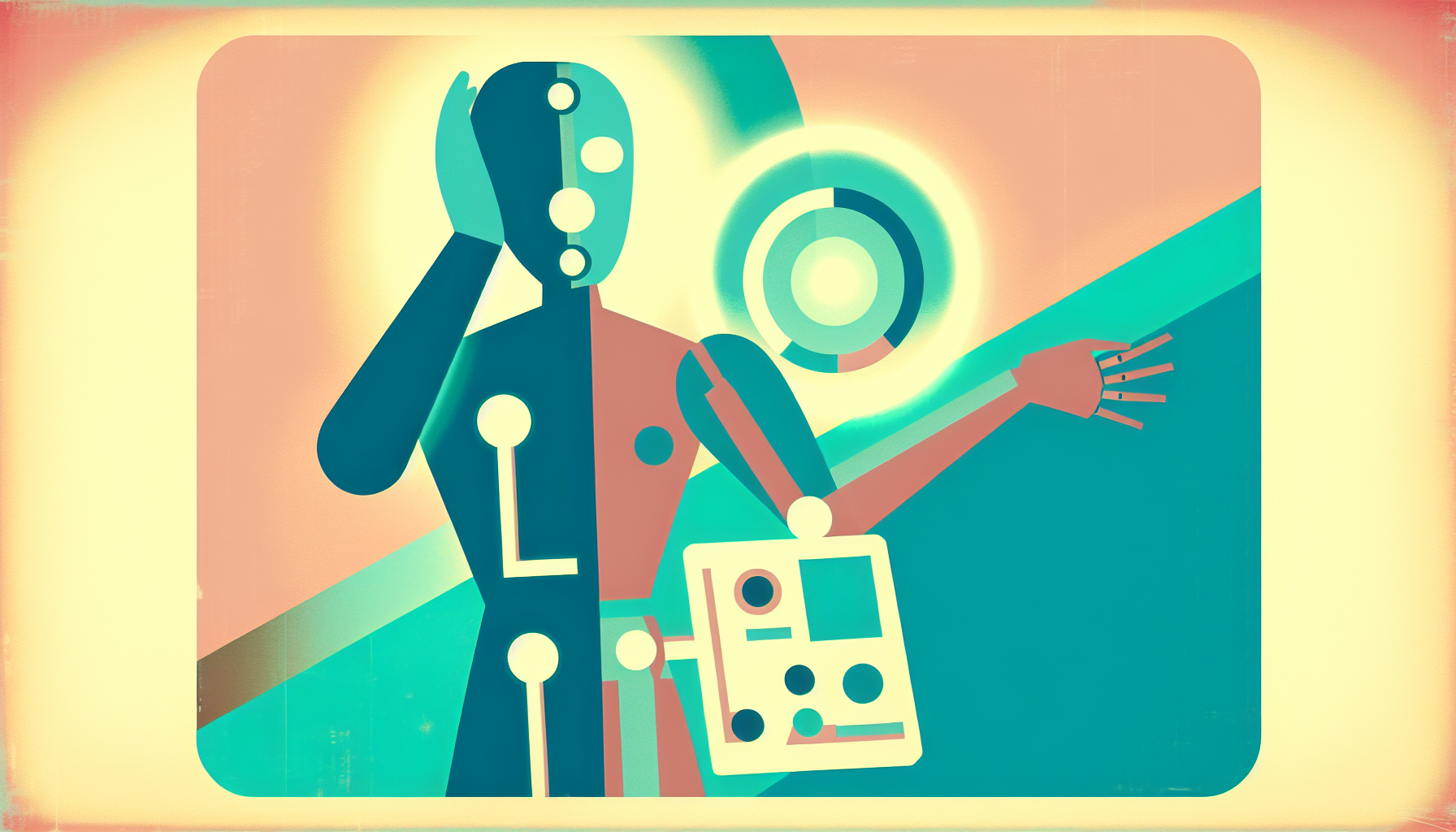Transhumanism, a term that may sound like it belongs in the title of a sci-fi blockbuster, actually represents a fascinating philosophical movement. At its core, transhumanism is about using technology to enhance the human condition, aiming to transcend the limitations of our frail human bodies and minds. When we throw artificial intelligence (AI) into the mix—a tool that could supercharge human intelligence—we get a particularly interesting combination. Today, let us explore the philosophical implications that arise when these two worlds collide, perhaps even with just a sprinkle of humor.
The Philosophical Quest for Enhanced Intelligence
Ever since our ancestors were smacking stones together to make fire, we’ve been trying to enhance our own capabilities. Fast forward thousands of years and we’re now trying to do something similar, except this time we’re metaphorically smacking together silicon chips and programming languages to create AI. This tool, this vast network of algorithms and data, could potentially enhance human intelligence to levels previously beyond our wildest dreams.
But what does it mean to have “enhanced intelligence”? Is it merely a matter of processing speed and memory capacity, like upgrading your laptop? Or does it involve deeper changes, influencing how we understand ourselves and our place in the universe? With transhumanism suggesting that such enhancement could make humans almost unrecognizable by today’s standards, we have a fair number of deep philosophical questions to ponder.
Identity Crisis: Are We Still Ourselves?
Imagine a future where AI can interface directly with our brains, helping us think faster, remember more, and even learn new skills in a matter of seconds. It’s as if the contents of the entire internet were uploaded directly into your mind. In this scenario, the question arises: where do “you” end and “technology” begin?
Some philosophers worry that such enhancements might muddy the waters of personal identity. If you “share” your thoughts and ideas with an AI, or even “borrow” the intelligence of an AI to make decisions, are you still making those decisions? Or has the AI taken over, leaving us with a sort of existential dread about who—or what—we are becoming?
The humor in this lies in imagining a version of yourself constantly needing software updates and occasionally freezing mid-sentence because you forgot to restart. Jokes aside, these questions touch the very essence of our self-understanding, and how AI could fundamentally transform it.
Moral and Ethical Crossroads
Beyond identity, transhumanism and AI present intriguing moral dilemmas. If intelligence can be enhanced dramatically, who gets access? Would enhanced intelligence lead to greater good, or create an even wider gap between the haves and the have-nots?
Imagine a world where higher intelligence leads to an even loftier moral ground. Perhaps we’d solve poverty, climate change, and global conflict in a jiffy, behaving more like benevolent beings of superior wisdom. Or, perhaps, we’d create a society of super-humans looking down upon the non-enhanced, making high school cliques look like a pleasant pastime.
The ethical questions are profound: should there be limits on how far we modify our own intelligence? Would these modifications stray into realms we consider inhumane today? Forget about biological enhancements—will human dignity be at risk if a rogue AI decides to take “enhanced” to a whole new level?
AI: Partner or Puppet Master?
We’ve always imagined AI as a helpful companion, simplifying our lives and giving us instant access to information. But with transhumanism’s promise of merging AI with human intelligence, we face a crucial boundary—what if AI starts making decisions on our behalf?
The line between ensuring AI serves humanity and becoming subjects under its rule can become painfully thin. With enhanced intelligence at our disposal, the dream of unparalleled wisdom may also come with the specter of losing autonomy. No one wants to be outshined by their own brain, especially if it starts patronizing you by suggesting better life choices.
The Road Ahead: Harmony or Dystopia?
As philosophers, technologists, and society at large grapple with these issues, there’s no denying the critical importance of the debate. Perhaps the key lies in balance—the meticulous art of enhancing our brains without overwhelming the quintessential quality that makes us human.
Transhumanism and AI together unveil remarkable potentials for improved lives and more profound understanding of existence. Simultaneously, they pose complex dilemmas that challenge us to think deeply about what kind of future we’re creating. Will we find harmony that leads to a fairer, wiser society for all? Or are we crafting a playbook for dystopia?
In the end, as with many philosophical debates, we’re left with more questions than answers. But isn’t that part of the fun? After all, if AI enhances our intelligence to its full potential, we might finally get the answers to the ultimate questions—like why all the good parking spots seem to vanish when you need them.
So, as we stand on the brink of what transhumanism and AI might offer, let us tread carefully, but with an open mind and a gently raised eyebrow. One way or another, the journey will surely be one of the most intriguing chapters in our human adventure.

Leave a Reply